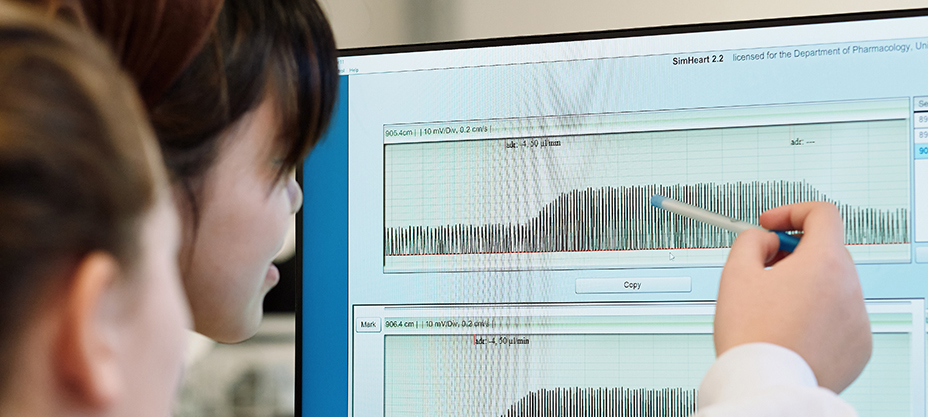What is Pharmacology?
Pharmacology is the science concerned with the study of drugs and how they work. To pharmacologists, a drug is any chemical agent which produces a recognisable biological effect.
Pharmacology is also concerned with the search for new drugs and how they can best be used in the treatment of diseases in both humans and animals. You can find out more about pharmacology at the British Pharmacological Society website.
Pharmacology is different from Pharmacy (a pharmacist is qualified to prepare and dispense drugs). Pharmacy is not taught at the University of Cambridge, but details of Pharmacy courses are available from the Royal Pharmaceutical Society of Great Britain.
Summer Internships
As an undergraduate, you have the opportunity to undertake a short internship with our lab groups. This is independently organised, please contact potential hosts directly.
We have interviewed previous summer interns. You can read about their experiences here.
At Cambridge, Pharmacology is studied in the second and third years as part of the Natural Sciences Tripos (NST) Part II course and Biological and Biomedical Sciences (BBS) Part II course.
The Pharmacology Department runs the Mechanisms of Drug Action course and participates in the Neurobiology with Human Behaviour Course. These are studied by all BBS students in the second year.
Admission to undergraduate courses is by application to a College. In addition to the information to be found on this page, you can find information about how you can apply to Cambridge (including details about courses, Colleges and admissions interviews) here.

